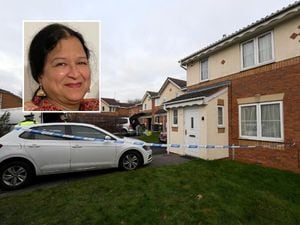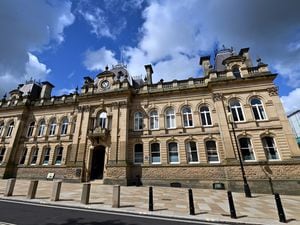WATCH: Parole system ‘is not fit for purpose’ - ex-head sacked after Worboys decision
Victims are being let down by failings in Britain's parole system that were highlighted by the decision to free John Worboys, according to Nick Hardwick.

The former head of the Parole Board was sacked by Justice Secretary David Gauke last month after judges overturned a recommendation to release the black cab rapist from prison.
In an interview with the Express & Star, Professor Hardwick called for a radical overhaul of the parole board – which he said was not fit for purpose – in a bid to 'open it up'.
He said Worboys' victims had been let down by a system which blocked them from challenging the decision without having to rely on politicians.
Prof Hardwick said he had no complaints about being sacked and conceded that the Parole Board 'got it wrong' over Worboys, who now goes under the name John Radford.
But he urged Mr Gauke to accept his own department's and the criminal justice system's shortcomings in the handling of the case.
"It is not up to the Parole Board to compensate for wider failings in the criminal justice system," he said.
Prof Hardwick set out his views on the future of parole at a lecture at the University of Wolverhampton, where he has an honorary degree.
He was returning to the city he called home in the early 1980, when he ran training schemes for young offenders.
He spoke at length about the Worboys decision and how he believed it must lead to major changes in how parole operates.
Overruled
In January the Parole Board recommended the release of sex attacker Worboys, who has been in jail since March 2009 following his conviction on 19 charges against 12 women.
However, the board's decision was overruled by the High Court and he will now stay in prison pending a fresh Parole Board panel.
According to Prof Hardwick, who did not sit on the three-member parole panel that made the decision, there have been 'serious failings' in the Worboys case 'right from the original police investigation'.
"They didn't believe the women who were coming forward and thought Worboys was a decent bloke who drove a cab," he told the E&S.
"There are concerns about what offences the CPS prosecuted, and there was a casualness in the way that the case was prepared for us by the MoJ.
"I don't disagree with the judgment of the court. The panel got some things wrong and I accept my responsibility for that, and I am sorry for that.
"But we certainly weren't the only people who got things wrong."
In a broadside against Mr Gauke, he added: "My concern is that if others don't accept what they got wrong, then the lessons will never be learned and we will get to the wrong solutions.
"If you are at the top of an organisation you should take responsibility when things go wrong.
"I am concerned that David Gauke is not accepting responsibility for some of the critical issues that went wrong.
"I accept my responsibility and he should accept his. I want the right lessons to be learned from this issue so the system improves in the future."
Prof Hardwick said he did not think Mr Gauke should resign, as 'we have already had six Justice Secretaries since 2010'.
But he asserted that 'our mate David' had an agenda against the Parole Board.
He said the board had no influence on the length of sentences handed out by courts and that it should not 'compensate for failings in the criminal justice system'.
He hit back at criticism that victims had not been contacted over the Worboys decision, which he said 'had nothing to do with us'.
Responded to complaints from some of Worboys' victims over not being able to influence the decision, Prof Hardwick said they had been 'let down', adding that it was 'ridiculous' that victims were not currently able to challenge board decisions.
He said it was 'striking' that victims have no legal standing in the parole system. "I think that's wrong," he said. He also reiterated a call he first made last November for the Parole Board to produce reports detailing its future decisions.
"I think it is in the public interest for people to know what is happening about a serious offender who might be about to be released," he said.
He added: "The Parole Board should not, absolutely not, make their decisions on the basis of what would be popular, and absolutely not to keep the Justice Secretary happy.
"These events [the Warboys case] demonstrate that the Parole Board is not fit for purpose. It should be independent and completely removed from the influence of the Ministry of Justice.
"It should have the powers and resources to carry out the additional responsibilities that appear to flow from the Worboys' judgement.
"Hearings should be more formal and adversarial, and the process should be radically opened up.
"Victims and prisoners should have the right to challenge Parole Board decisions. Transformation and change in the process is now required, and we're going to see if the Justice Secretary has got the stomach for it."





